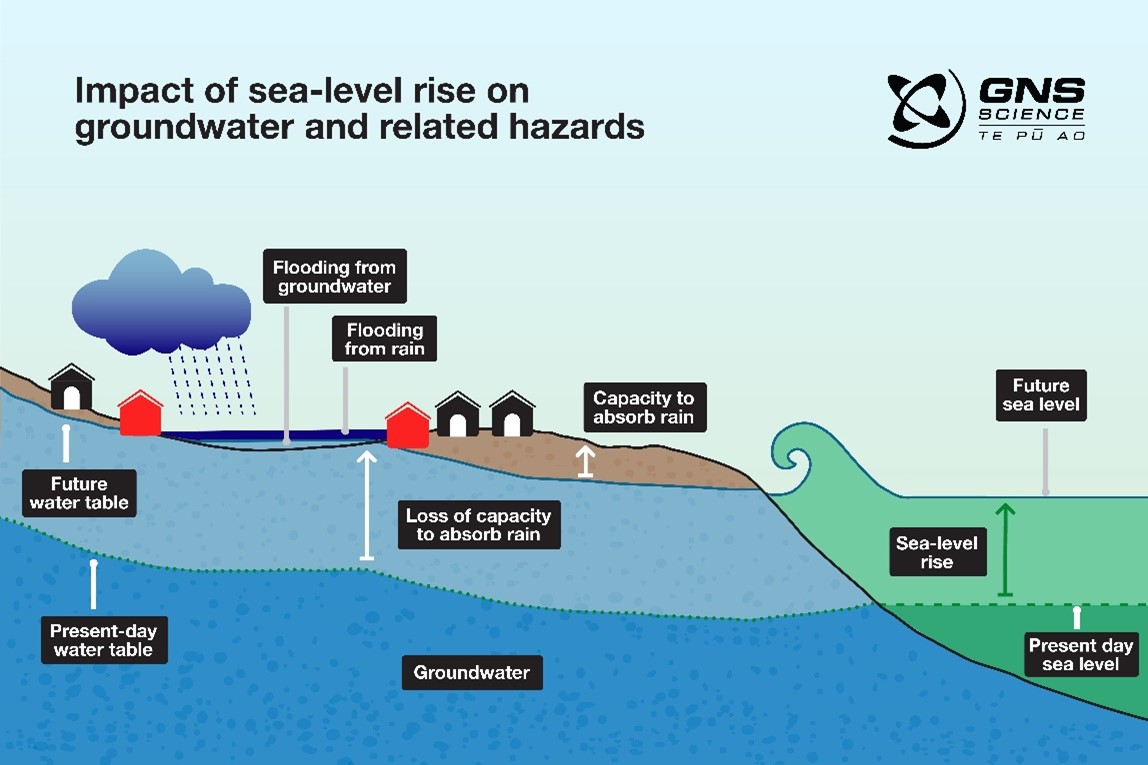
|
Getting your Trinity Audio player ready...
|
Over four years, the Institute of Geological and Nuclear Sciences (GNS Science) conducted a study utilising data from the ORC-operated groundwater monitoring network in South Dunedin and Harbourside. This research explored the intricate interplay between rising sea levels and groundwater dynamics, emphasising the pivotal role of digital technology.

The study leveraged advanced data collection from the groundwater monitoring network to analyse factors such as tides, storm surges, and rainfall. This wealth of data served as the foundation for forecasting potential issues related to rising sea levels and groundwater dynamics. The findings underscored the vulnerability of the flat, low-lying coastal land in Harbourside and South Dunedin to the rising sea and harbour effects.
Dr Simon Cox, Principal Scientist at GNS Science, highlighted a dual threat observed this month: rising groundwater due to increasing sea levels. The study revealed that specific areas faced the risk of flooding, reducing the capacity to store rainwater and causing flooding from below, all preceding direct sea inundation. While Harbourside is expected to experience a lesser impact, South Dunedin is anticipated to face significant challenges with rising groundwater.
The implications of this study extend beyond localised impacts, particularly considering the vital roles that Harbourside and South Dunedin play in Dunedin’s overall functionality. The findings underscored the city’s need for comprehensive planning and adaptation strategies, specifically harnessing digital technology.
Dr Cox emphasised that the report’s findings, based on comprehensive data from the groundwater monitoring network, will be presented at the Otago Regional Council Safety and Resilience Committee meeting on February 8. This presentation offers crucial insights into the complexities beneath the surface in South Dunedin and Harbourside, forming a cornerstone for informed future planning.
Building on collaborative monitoring efforts between ORC and GNS since 2009, the research is integral to understanding potential issues related to groundwater and sea-level rise. The data collected from the monitoring network is mapped against incremental sea-level increases, providing planners with valuable insights to anticipate and address evolving hazards.
Dr Jean-Luc Payan, Otago Regional Council Manager of Natural Hazards, emphasised the significance of the research in understanding underground complexities. The study, based on incremental sea-level rise scenarios, contributes to understanding how hazards will evolve and supports future planning and adaptation efforts, showcasing the transformative power of digital technology in addressing climate-related challenges.
The findings are expected to be pivotal in informing the South Dunedin Future programme, a collaborative effort between ORC and Dunedin City Council to address climate change, rising sea levels, and flooding. Dr Cox acknowledged the challenges in determining specific timeframes for groundwater-related impacts due to global warming and emissions reduction efforts, highlighting the need for innovative digital solutions in adapting to future uncertainties.
The study underscored the importance of holistic planning to address water-related challenges, emphasising the role of digital technology in managing and mitigating future issues. As groundwater rises, challenges become apparent, including inundation of stormwater and wastewater systems, building instability, and liquefaction vulnerability. The forecasted changes for South Dunedin indicate a decreasing capacity for rainwater absorption, exacerbating existing flood issues.
Moreover, the study anticipated groundwater-related issues will manifest before sea inundation, at least locally in South Dunedin. Coastal inundation from the harbour is projected at 60-70 cm sea-level rise around 2100 or later. This pioneering study in New Zealand focused on modelling groundwater’s contribution to multiple flooding hazards, shedding light on the transformative potential of digital technology in enhancing climate resilience.
Dr Cox emphasised the value of the comprehensive data from the groundwater monitoring network and the partnership between Otago Regional Council and GNS Science. This newfound understanding is crucial for enhancing Dunedin’s climate resilience and holds important insights for other coastal areas facing similar challenges. The study highlighted the proactive role of digital technology in monitoring and addressing evolving hazards, setting a precedent for harnessing innovation in coastal settings.
















